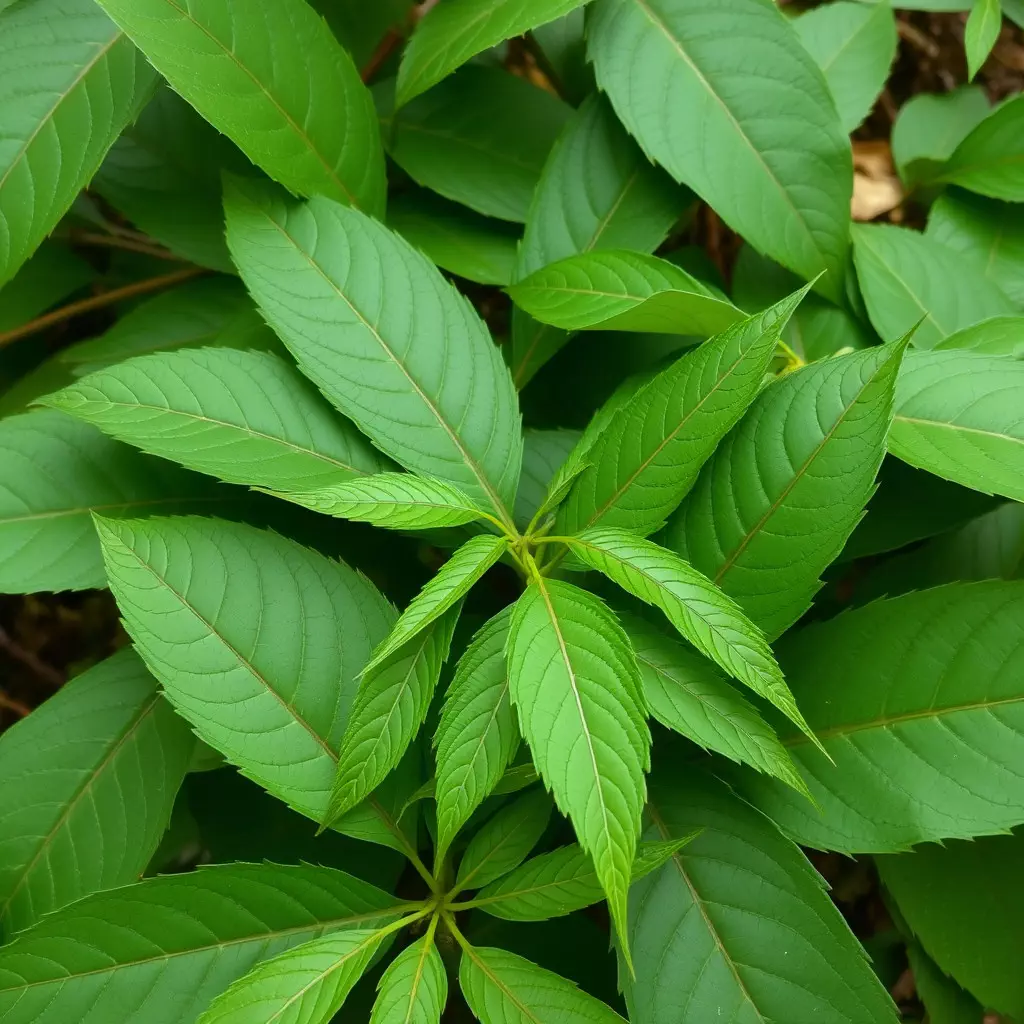Kratom-Fueled Post-Workout Recovery involves leveraging Mitragyna speciosa to enhance both physical and psychological recovery after intense training. Its alkaloids can modulate pain perception, mood, and energy levels, offering relief from muscle soreness and promoting mental clarity and tranquility post-exercise. Strains like Maeng Da and Bali are particularly noted for their pain-relieving properties. Beyond alleviating physical discomfort, kratom also aids in managing the body's stress response, potentially lowering cortisol levels, which is crucial for mental decompression following strenuous activity. By incorporating kratom into post-workout routines with caution and adherence to safety guidelines, individuals can expedite muscle recovery and reinforce their mental fortitude, preparing them for better focus and determination in subsequent training sessions, ultimately optimizing both physical wellness and mental toughness concurrently. This approach is highlighted as a strategy that may bolster mental resilience, particularly for activities requiring sustained effort and high intensity, by combining the benefits of kratom's mood-elevating and energy-boosting effects with its analgesic properties to support athletes in their pursuit of peak performance.
Embarking on a fitness journey requires more than physical exertion; it demands mental fortitude. This article delves into the transformative potential of kratom in enhancing post-workout recovery, thereby fostering mental toughness. We explore how kratom-fueled post-workout recovery strategies can significantly improve resilience, reduce muscle soreness, and elevate overall performance. By integrating kratom into your training regimen, you’ll not only expedite physical healing but also cultivate a robust mindset essential for peak athletic achievement. Join us as we unravel the role of kratom in post-exercise mental strength and its integration into effective training methods.
- Optimizing Mental Toughness through Kratom-Enhanced Post-Workout Recovery Strategies
- The Role of Kratom in Post-Exercise Mental Fortitude and Muscle Soreness Alleviation
- Crafting a Resilient Mindset: Integrating Kratom into Your Training Regimen for Peak Performance
Optimizing Mental Toughness through Kratom-Enhanced Post-Workout Recovery Strategies

Engaging in high-intensity training demands robust mental toughness and effective recovery strategies to ensure optimal performance and muscle regeneration. Kratom-fueled post-workout recovery emerges as a pivotal component in this process, offering both physical and psychological benefits. Mitragyna speciosa, commonly known as kratom, contains alkaloids that can influence the body’s pain perception, mood regulation, and energy levels. When used judiciously, it can enhance the recovery phase by mitigating muscle soreness and promoting a state conducive to relaxation and mental clarity. Athletes and fitness enthusiasts can leverage kratom strains with analgesic properties, such as Maeng Da or Bali, to alleviate discomfort after intense exercise. Additionally, incorporating kratom into a post-workout routine can help manage the stress response, reducing cortisol levels and facilitating mental detachment from the day’s exertions. This holistic approach to recovery not only accelerates muscle recovery but also bolsters mental resilience, preparing individuals to face subsequent training sessions with renewed focus and determination. Proper dosing and adherence to guidelines are crucial for safe and effective use of kratom, ensuring that mental toughness is fortified in tandem with physical well-being.
The Role of Kratom in Post-Exercise Mental Fortitude and Muscle Soreness Alleviation

Integrating kratom into a post-workout regimen can significantly enhance mental toughness, particularly in activities that demand sustained effort and high intensity. Kratom-Fueled Post-Workout Recovery hinges on the alkaloids present in kratom leaves, which interact with the brain’s opioid receptors to induce a sense of well-being and diminish discomfort. This effect can be particularly beneficial for athletes or individuals undergoing rigorous training sessions, as it may help mitigate the mental fatigue that often accompanies physical exhaustion. The mental clarity and improved mood that kratom can provide post-exercise are instrumental in pushing through mental barriers, enabling a more focused and resilient mindset. Additionally, kratom’s analgesic properties contribute to alleviating muscle soreness, which is often associated with intense physical activity. By reducing the pain signals to the brain, individuals can engage in successive training sessions without the interruption of lingering post-exercise discomfort, thereby fostering a consistent and progressive training routine that builds mental fortitude over time. This dual benefit of enhancing both mental well-being and physical recovery positions kratom as a valuable tool for those seeking to improve their performance and endurance through kratom-fueled post-workout recovery strategies.
Crafting a Resilient Mindset: Integrating Kratom into Your Training Regimen for Peak Performance

Integrating kratom into a training regimen can be a strategic approach to enhancing mental toughness and post-workout recovery. Kratom, a plant-based alkaloid, is known for its potential to elevate mood and energy levels, which can be pivotal in maintaining focus and motivation during intense training sessions. Athletes and fitness enthusiasts who incorporate kratom into their pre-workout routine report an enhanced ability to push through physical and mental barriers. This heightened resilience sets the stage for a more productive and focused workout, allowing individuals to achieve their performance goals with greater consistency.
Moreover, the role of kratom in post-workout recovery cannot be overstated. Its analgesic properties may aid in alleviating muscle soreness and pain, enabling quicker recovery between sessions. This is crucial for those who engage in high-intensity or repetitive training, where the risk of injury or overtraining can hinder progress. By facilitating a kratom-fueled post-workout recovery, athletes can reduce the downtime typically required after strenuous activity, leading to accelerated muscle repair and the ability to train more frequently. This cyclical process of robust training followed by effective recovery underpins the development of a resilient mindset and peak performance capabilities.
Incorporating kratom-fueled post-workout recovery into one’s training regimen can significantly enhance mental toughness. As discussed, the strategic use of kratom not only aids in alleviating muscle soreness but also bolsters mental fortitude following intense physical exertion. By adhering to the outlined strategies for optimizing mental resilience and integrating kratom where appropriate, athletes and fitness enthusiasts can forge a more robust mindset that supports peak performance and recovery. Embracing these practices can lead to improved overall well-being and performance outcomes, making kratom-enhanced post-workout recovery a valuable tool in the pursuit of mental toughness and physical longevity in training.






